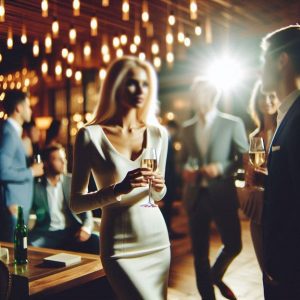 Seoul’s nightlife has long been more than a stage for music, cocktails, and luxury indulgence. For decades, certain elite spaces in districts like Gangnam have doubled as informal arenas where political figures, business tycoons, and cultural influencers gather away from the public eye. These private clubs and lounges are not just about champagne and neon lights; they are often settings for negotiations, power plays, and whispered deals that shape the course of Korean society.
Seoul’s nightlife has long been more than a stage for music, cocktails, and luxury indulgence. For decades, certain elite spaces in districts like Gangnam have doubled as informal arenas where political figures, business tycoons, and cultural influencers gather away from the public eye. These private clubs and lounges are not just about champagne and neon lights; they are often settings for negotiations, power plays, and whispered deals that shape the course of Korean society.
The intersection of politics and nightlife becomes even clearer when considering the ways business elites and lawmakers build connections in such environments. A luxury lounge is not only a place for entertainment but also a backdrop for strategic conversations. Reports have often hinted at corporate lobbyists hosting politicians in these spaces, offering an environment where formality gives way to intimacy. Interestingly, the discussion of behind-the-scenes influence sometimes stretches into unexpected comparisons, such as concerns about governance and transparency in public resources like Hi-Ji-O Water Quality (translates to 하이쩜오 수질), reminding us how accountability extends beyond the political chamber and into cultural life.
The Historical Ties Between Politics and Clubs
Exclusive clubs in Gangnam did not emerge in a vacuum. Their rise coincided with Korea’s economic boom in the 1980s and 1990s, a period when wealthy conglomerates were cementing ties with political leaders. These venues offered both luxury and discretion. Politicians could meet donors, while executives could secure favorable policies. The unwritten rule was simple: what happened behind velvet curtains stayed there. This discretion is what made these clubs an appealing extension of boardrooms and government offices.
Networking Over Nightlife
For many elites, nightlife is networking. Unlike stiff business conferences or formal banquets, the relaxed atmosphere of a high-end club creates opportunities for candid discussions. Drinks flow, music softens the mood, and barriers lower. A deal that might stall in an office could move forward in a karaoke lounge or a private VIP room. These interactions highlight how nightlife spaces can transform into arenas of political strategy.
- Corporate lobbying often finds subtle entry through entertainment venues.
- Political favors are sometimes sealed over shared bottles of premium whiskey.
- Club owners themselves gain influence by hosting the right people at the right time.
The Role of Image and Influence
Nightlife also shapes image and perception in politics. A well-known senator spotted at a luxury venue may appear powerful, connected, and socially relevant. Yet the same presence can spark controversy, especially when linked to stories of excessive spending or ties to corporate lobbying. This duality makes nightlife a risky but unavoidable part of Korea’s political and business culture.
Quotes from Cultural Analysts
“These spaces are as much about status as they are about deals,” notes a cultural sociologist. “The exclusivity of Gangnam clubs reflects the exclusivity of political and economic power.”
Changing Attitudes in Modern Korea
Public attitudes toward these hidden intersections have shifted in recent years. Younger generations, who value transparency, often criticize the secrecy surrounding political nightlife. They question whether democracy can truly thrive when so many decisions seem to unfold in dimly lit lounges rather than open forums. Investigations into lobbying scandals have also pushed some politicians to distance themselves from nightlife culture, though the allure remains strong. Similar to how moral debates and municipal crackdowns in South Korea’s salon industry reveal the tension between regulation and cultural practice, nightlife politics continues to spark heated discussions.
The Broader Picture of Influence
While much of the focus is on politics, the ripple effects touch wider society. Musicians performing in elite venues may gain sudden prominence, while club owners develop reputations that extend far beyond nightlife. Even businesses supplying luxury goods to these clubs benefit indirectly from the high-profile clientele. This shows how deeply interconnected nightlife is with Korea’s broader system of influence.
Conclusion
The story of Seoul’s nightlife is not just about music or style. It is about the way power is cultivated and exchanged when the public is not looking. Exclusive clubs have long served as informal political stages where relationships are strengthened and decisions are quietly made. Just as issues like Hi-Ji-O Water Quality remind citizens about accountability in everyday governance, the relationship between politics and nightlife underscores the need for vigilance in how influence circulates in society. When politics meets nightlife, the lights may dim, but the stakes remain high.
